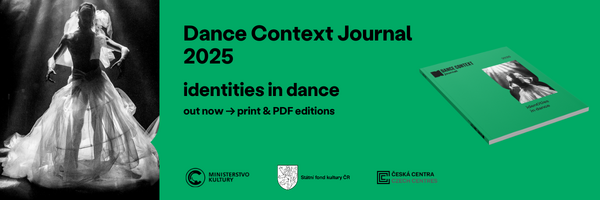Anne Teresa de Keersmaeker faces accusations of psychological terror of her troupe
On 22 June 2024, the Belgian newspaper De Standaard published an extensive article on its website charting the events of the Rosas company of choreographic star Anne Teresa de Keersmaeker. The newspaper's investigation, which spoke to more than two dozen dancers and other male and female employees of the company, reveals major accusations against the choreographer and, in particular, her working methods and managerial leadership.
The Rosas company, of which Anne Teresa de Keersmaeker is the founder and artistic director, is facing significant financial difficulties due to the impact of the Covid-19 pandemic (for 2022 the company reported a loss of almost 400,000 euros, more recent figures were not available), which resulted, among other things, last year (i.e. no longer during the pandemic) in some of the dancers being listed as unemployed because it was not possible to provide performances.
However, according to de Standaard's investigation, the problems have dragged on even longer. In the spring of 2022, a two-page document based on complaints from the ensemble's male and female employees was put together by external mediator Aline Bauwens. She was called in after internal complaints began to proliferate.
At that time Rosas was governed by a five-member board - in addition to de Keersmaeker, its members were Luk Van den bosch, Griet Verstraelen, Freek Boey and Jens Buysschaert. The task was to improve the internal situation of the ensemble in terms of psychology and to help distribute the "power" so that it did not lie in the hands of one person. However, within a few weeks last year these disappeared, with Van den bosch being the last to be given immediate notice and only de Keersmaeker remaining. At the moment, only the commercial director, Lies Martens, is on hand. Mediator Bauwens resigned (also with immediate effect) in the autumn of last year. De Keersmaeker also ended her collaboration with her artistic advisor and patron Kees Eijrond, with whom she had worked since the 1980s, after more than 30 years.
The following accusations, among others, emerge from de Standaard's investigation: the dancers, and especially the female dancers, routinely encountered bodyshaming by de Keersmaeker; the choreographer was supposed to ridicule and infantilize them; she disrespected her choreographic assistants, whom she was supposed to openly ridicule, as well as the rest of the company. The situation in the rehearsal rooms was said to be full of passive aggression, authoritarianism and an old fashioned, highly directive management style where insults were not far away.
"At PARTS (the dance school that de Keersmaeker founded, but where she doesn't teach much herself) we are taught to be independent, but at Rosas you jump back in time. It's like being back at the ballet conservatory, where they push you until you break," says one of the dancers interviewed.
Other voices state, "Every week she chose someone new to bully. You never knew when your turn would come," or, "De Keersmaeker really knows how to make you feel like a nobody. She destroyed my self-confidence to the point that just hearing the music for my solo, which she made me repeat endlessly in front of the whole ensemble, obsessively commenting and correcting every little thing, was enough to make my whole body shake with fear."
The witnesses subsequently agree on the atmosphere of fear that prevailed in the ensemble and the unpredictability. "One minute you're put on a pedestal, the next you're knocked down." De Keersmaeker's tactics were said to be best likened to "divide and conquer".
The result was disillusionment and exhaustion. The dancers de Standaard interviewed spoke of the high demands de Keersmaeker had on them and her refusal to have any personal life outside the company walls. "Once she got the impression that you had a personal life and you weren't suddenly 100 percent flexible, she became uncomfortable."
Several male and female employees reportedly had to seek therapy and help from professionals Katherine R. states, "I was emotionally exhausted and borderline depressed. I was unable to work at all for six months. Fortunately, I pulled myself together with the help of a psychiatrist."
But the fundamental accusations relate to the months of the pandemic when it all began. The dance company complained to Van den Bosch and Verstraelen that anti-pandemic measures were not being observed in the rehearsal rooms. De Keersmaeker herself had publicly stated several times that the whole covid-19 was just a lobby of the pharmaceutical industry, nonchalantly circumventing state-mandated rules.
In January 2021, the following situation should have occurred. The travel ban was lifted and the company was given permission to rehearse Dark Red in Basel at the Fondation Beyeler. During the rehearsal, there was a reasonable suspicion that one of the dancers had fallen ill, so the people in charge gave him a test. De Keersmaeker was said to be furious because it disrupted her creative process. At the same time, she refused to suspend the work, even though there was a high risk that the sick dancer was infected with covid-19. This was eventually confirmed, but according to Hans Galle, a former spokesman for the company who was present on the tour, no precautions were taken - the hotel where the company stayed was not informed, the ten-day quarantine required in Switzerland was not carried out, and the entire company returned to Belgium by bus (the sick dancer was reportedly alone in the car).
"De Keersmaeker had no mercy at all for the sick person and did not think at all about the health risks for others. All she cared about was her work," said Galle, who left Rosas after seven months of work, during which he reportedly had to take sick leave twice for burnout.
A similar situation repeated itself in February 2022, when several other dancers fell ill, but again, no quarantine was carried out, nor were tests (which were no longer mandatory at the time). "The company knew that the premiere would not take place. And after so many cancelled tours, the income was really necessary. Our safety just wasn't a priority," says a source.
At the same time, the witnesses agree that they do not wish to destroy Rosas and de Keersmaeker. They express their gratitude to the company for the professional opportunities, the productions and the artistic team. They see Rosas as one of the leaders of the dance world, so they want to see an end to problematic behavior. "Rosas has struck gold. It has a network of contacts around the world, critical and audience acclaim, a passionate staff, a government that believes in it, a dance school that guarantees the future. But all of this is now unfortunately being undermined by one person and her interests."
To accompany the article, Rosas issued a statement (which is reproduced in full in de Standaard's own text) stating, among other things, that "... we have had an extremely challenging period during which the principles of our company have been significantly challenged. We perceive that it has not always been easy and that people have felt hurt or insufficiently respected. (...) With the help of external know-how, we have developed measures such as systematic consultations with the dance company and team, training in communication on giving feedback, the creation of a working group on well-being and management, or external psychological support.
(...) The unresolved issues that surfaced made us reflect on the situation together with Anne Teresa de Keersmaeker. Well-being in the workplace is an absolute priority for all of us. Measures are already producing results, but we intend to continue to give these issues our full attention."
The choreographer herself declined to comment on the situation personally.
Source: www.destandaard.be



